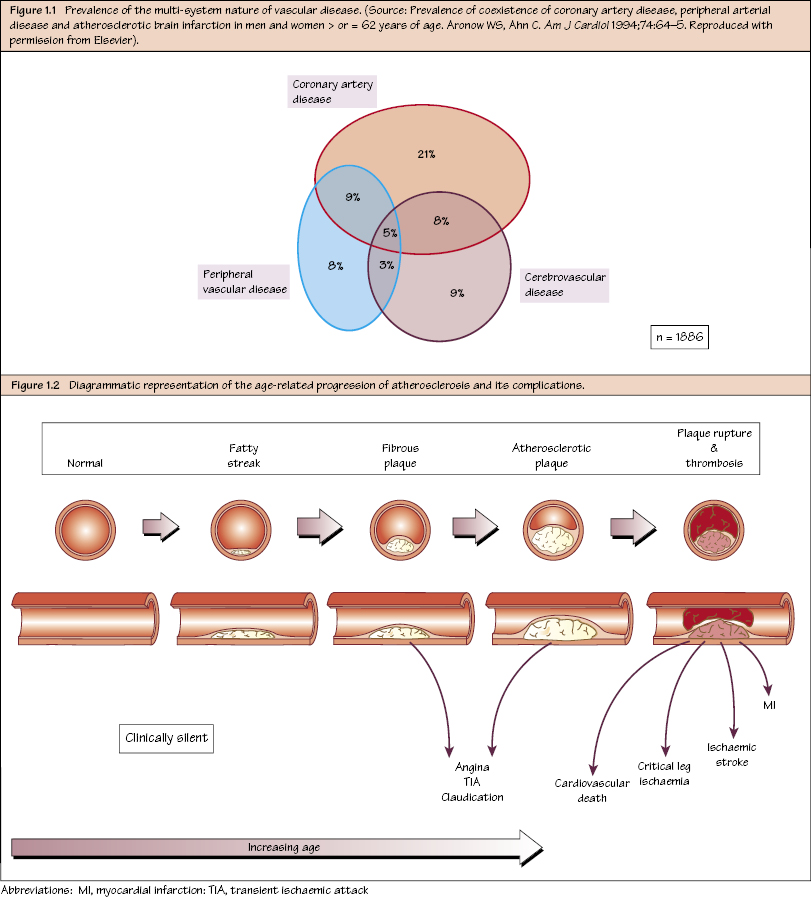Overview of Vascular Disease Vascular disease is a systemic disease typified by widespread atherosclerosis. The importance of this fact cannot be overemphasised both with regards to the multitude of medical conditions the vascular patient may present with in addition to the risks of intervention and surgical treatment in this patient group. Being ‘systemic’, vascular disease affects a multitude of organs and tissues including the brain, heart, gut, kidneys and limbs. Therefore, the finding of atherosclerotic disease in one body region should prompt the examining physician to seek disease elsewhere in other high-risk vascular tissue (see Figure 1.1). It is well documented that peripheral vascular disease is an independent marker for both coronary artery and cerebral vascular disease as well as an independent risk factor for an event in these tissues. In addition, vascular disease accounts for two out of the top five causes of death in the Western world (coronary artery disease and stroke). Furthermore, conditions afflicting the vascular patient account for an enormous number of lost disability-adjusted and quality-adjusted life years; including stroke, diabetes, obesity and chronic renal failure.

Stay updated, free articles. Join our Telegram channel

Full access? Get Clinical Tree


